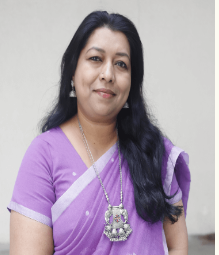Our Schools
Table of Contents
“Before anything else, preparation is the key to success”
This quote by Alexander Graham Bell rightly points towards the importance of preparation in Exams. As the CBSE 12th Board exam date has already been announced i.e 15th Feb to 2nd April, it is the right time for the students to devote themselves to the exam preparation completely. Class 12 CBSE Board exam preparation requires devotion and a perfect strategy to excel in the final exam. From identifying the weak areas to multiple rounds of revision is the need of the hour.
If you are overwhelmed and wondering how to ace CBSE class 12 exam, here are a few tips for scoring good marks in the final exam:
-
Have a good grip on the syllabus:
It is the primary thing that every student should do before starting revision for the final exam. Having a good hold over the entire syllabus helps them to bifurcate it into the strong and weak areas. This way they can plan their days and devote more time to weaker sections.
-
Go through Previous year’s questions (PYQs):
Many times students miss this very crucial step during their Class 12 CBSE Board exam preparation. PYQs not only help students get an idea about the pattern but also provide a brief idea about areas that need special focus.
-
Follow the CBSE Board-approved books:
Students often follow various reference books, but it is advised that before jumping onto advanced books they should go thoroughly to the CBSE Board-approved books. This way they will get a good hold over the CBSE curriculum.
-
Revision is the key:
Skipping the revision session is one of the most common mistakes made by many students. Once the topic is done its revision should be done on the same day or the next day. This helps in retaining the various complex concepts. Keeping a note of the weak areas during the revision session would be beneficial as those topics can be revised again during the next study session.
-
Involve more writing:
As per a study, writing helps in better retention and better brain activity. Students should be involved more in writing during preparation. Once the concept is cleared, they should write it down for better retention, it will also be beneficial during final revision.
-
Keep the study material handy:
Keeping the study material handy helps the students during the final revision before the exam. For this students can prepare various mind maps for complex topics or use sticky notes or prepare short notes.
-
Practice Test:
The Importance of practice is not a hidden secret and if you are wondering how to ace CBSE class 12 exam, practising mocks is one of the most common tips. While students practise mocks they need to do it in an exam-like environment that includes a time-bound completion and a quiet place.
-
Plan the day:
Planning the day efficiently is one of the most crucial parts of the class 12 CBSE Board exam preparation. It is advised to plan a day before and act accordingly. For planning students should dedicate separate hours for weak and strong areas and a special hour during the night for the revision sessions.
-
Time management:
Proper time management is the key to better execution. Students should make sure to follow their daily timetable and complete the self-assigned task in the given time frame.
-
Take small breaks:
Sometimes due to exam pressure, students do not include small breaks in the study plan. A small break in between is important for their refreshment. They can also include the Pomodoro techniques that include 25 min of study and 5 minutes of break.
It is advisable to follow the above-stated CBSE Class 12 Exam Plan and Tips to perform well in the Board exam. A well-planned strategy and thoughtful execution would assure good marks in the final exam and a bright career ahead.
If you are looking for the best CBSE schools in Bangalore, consider Ekya Schools. They are among the leading CBSE Schools in Bangalore, offering quality education and guidance to the students. Ekya schools have well-qualified and well-trained teachers who help the students during their board exam preparations. They make sure every concept of the students is cleared during the revision session as they focus on collaborative thinking over rote learning. With the 30-years of education legacy, they are crafting future leaders. Their innovative curriculum is based on the Understanding by Design (UbD) Framework which is a benchmark against international standards and research-based pedagogy.
Bounce back to the Normal
Mankind has faced multiple challenges and difficulties such as Natural disasters, Economic crises, Political instability, Pandemics, Wars etc. The bigger and complex the problem is, the faster we have bounced back with utmost planning and precision which has made us much stronger than before.
But there is one community that always has a long-lasting impact from all these crises and takes its own pace to bounce back and that is the student community. They are vulnerable and are less resilient to immediate changes that occur in the environment, society and even in the education system.
We have often seen our students struggle during the “transition” - maybe it is from one grade to another, one school to another or one learning mode to another. These young minds have often shown resistance to adapting to quick changes and are willing to continue in their comfort zone.
Students even after a year of normal schooling are apprehensive about socializing, sharing opinions freely, collaborating and working on projects or assessments. They face challenges like anxiety, pressure to perform well, fear of failure, fear of being judged etc.
The biggest challenge they face is Exams and it's fear!!!!
The examination stress can manifest itself in various physical and emotional symptoms like difficulty in sleeping, Headaches, stomach aches, loss of appetite, nervousness, depression, anger and difficulty focusing on studies. There are multiple instances where students fall sick just before the exams and remain absent for the same.
Students must be empowered to understand that the exams are conducted to test their knowledge, skills and abilities so that they are supported in the areas where they lag.
I strongly believe that as Educators and parents, we have a great role to play here.
The exams must be considered as a normal part of schooling and education. We must enable and guide our students to face them without any inhibitions or fear.
How can we support?
As Educators,
We must show a lot of trust and confidence in students and make them feel that they are important to us and we care for them.
Provide emotional Support
Encourage students to express their concerns and feelings without any hesitation and reassure them through positive reinforcement to help them build confidence and reduce anxiety.
Supportive Learning Environment
Help students feel more motivated and develop essential skills such as self-confidence and resilience and improve their overall performances.
Set achievable goals and expectations
Educators must communicate exam expectations clearly with their students, provide study resources, and offer personalised feedback to help them improve their exam performance.
Time Management
Train students to master the skill of time management and prepare a study schedule or a calendar which includes specific time slots for each subject with regular breaks.
By breaking down their study sessions into smaller, more manageable chunks, most students will feel less overwhelmed and will be able to make the most of available study time.
Sharing the Resources
To help students excel in their exams, Educators should provide relevant study materials and practice papers. They can also create a resource library, conduct review sessions, and use technology to provide online resources and learning tools.
The latest survey by the Times of India suggests a few strategies for parents to support their children during the exam and reduce their fear, stress and anxiety levels.
-
Recognise the symptoms of stress and anxiety, including physical ailments like frequent headaches, stomach aches and loss of appetite. Refer the child to a family paediatrician or a counsellor depending on the intensity of the concerns.
-
Be an active listener and communicate with the child that these emotions and feelings are normal and can be overcome through sharing with parents or their loved ones.
-
Ensure that the child has a proper sleeping pattern and do not force the child to study at night even if the exam is scheduled next morning.
-
Provide healthy and nutritious food and completely avoid junk during the exams.
-
Restrict the use of gadgets and other mediums of entertainment for all the family members so that a lot of distractions can be reduced.
-
Help them to create a study schedule and keep a check on the same regularly.
-
Provide trust and reassurance to the child. Tell them to put forward their best and consider their failures as a learning opportunity.
Let me conclude with the following quote: “Marks in exams don’t always equal intelligence or brilliance” Dear students, recognize your inner strength and face the examinations with a lot of confidence and enthusiasm, believe in yourself and success will cherish you.
Mumtaz Begum Middle and Senior School Academic Coordinator
Importance of art education in kids
In a society where subjects like math, science, and language are given priority, why should art be just as important?
Give a 4-year-old child some colours and they will start scribbling something on the floor, paper, or wall. It’s their instinct and they love doing so.
Art has always been man’s primary mode of documentation, recollection, and language. It is evident in cave paintings that date back to ten thousand years ago. We see paintings of bulls, hunting scenes, family scenes, and more which tells us that art has always existed as a medium of expression for recording moments as well as for decorating the space.
We have the instinctive nature to create something simply because we want to and because it provides us solace, peace, or happiness.
500 years ago, art was an integral part of any architecture, be it churches, temples, palaces, public buildings, etc. Students as young as 10 received elaborate education in art so that they could become masters and produce some of the most extraordinary masterpieces we see today.
Today, though there is no need for art to be part of the same spaces, artists continue to practice art because it acts as a medium of communication where words fail. Today, many people resort to art as a form of therapy because the act of creating something(painting, drawing, pottery, embroidery) is proven to not only the mind, but also the nervous system, be it painting, drawing, pottery, or embroidery.
When a child engage in art activities, it helps them develop a kind of communication that enables them to express their emotions, feelings, and ideas better than words. Art has been proven to improve focus, mental health, and cognitive abilities, and enhance the creative side of the brain. Just colouring on the paper has been shown to improve certain functions of the brain.
Drawing helps in the motor skills of the hands and improves hand-eye coordination. Drawing complex lines and shapes requires a lot of focus and dexterity more than writing, so it is also a good exercise for the brain.
Functional benefits aside, learning art enables children to discover, explore, and learn more about the world & themselves outside of life’s necessities. At Ekya Schools, we provide art education with specific goals that include improving motor skills, hand dexterity, creative thinking, observational skills, and more.











Leave a reply